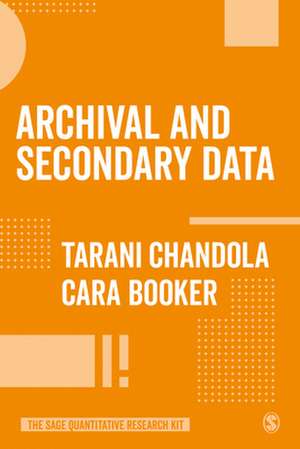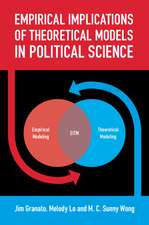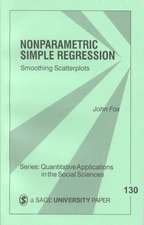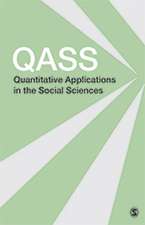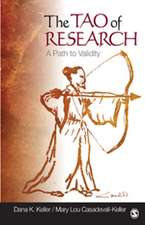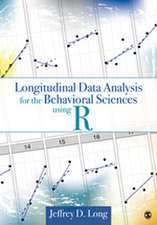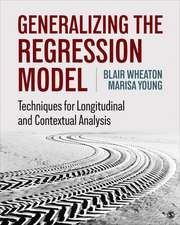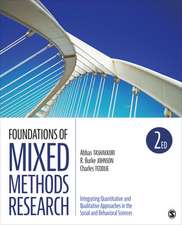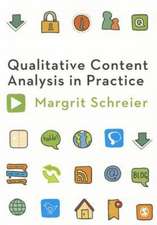Archival and Secondary Data: The SAGE Quantitative Research Kit
Autor Tarani Chandola, Cara Bookeren Limba Engleză Paperback – 20 mar 2022
Topics include: · Generating your research question
· Selecting appropriate datasets and variables
· Examining univariate, bivariate and multivariate associations
· Visualisng your data with tables and graphs
Part of The SAGE Quantitative Research Kit, this book boosts students with know-how and confidence, to help them succeed on their quantitative research journey.
Preț: 275.76 lei
Nou
52.77€ • 54.89$ • 43.57£
Carte disponibilă
Livrare economică 24 martie-07 aprilie
Livrare express 07-13 martie pentru 23.35 lei
Specificații
ISBN-10: 152642472X
Pagini: 184
Dimensiuni: 170 x 242 x 14 mm
Greutate: 0.3 kg
Ediția:1
Editura: SAGE Publications
Colecția Sage Publications Ltd
Seria The SAGE Quantitative Research Kit
Locul publicării:London, United Kingdom
Cuprins
From Ideas to Research Questions
Finding secondary data
Getting to know the data
Basic Data Management
Manipulating data and basic statistical analysis
Writing up your analyses
Complexities of working with secondary data: Limitations of Archival and Secondary Data Analysis
Conclusions
Notă biografică
Tarani is a Professor of Medical Sociology. He is a co-director of the ESRC International Centre for Lifecourse Studies in Society and Health and is also the co-director for the SOC-B (Social-Biological) Centre for Doctoral Training funded by the ESRC and BBSRC. He is a member of the ESRC Strategic Advisory Network, fellow of the Academy of Social Sciences and the Royal Statistical Society and is an editor-in-chief of the journal Sociology. He joined the University of Manchester in April 2010, was the head of the department of Social Statistics (2012-2014) and the director of the Cathie Marsh Institute (2013-2016). He was formerly at the UCL Research Department of Epidemiology and Public Health, and prior to that completed his PhD in Sociology and post-doc at Nuffield College, University of Oxford. Tarani¿s research is primarily on the social determinants of health, focusing on health inequalities and psychosocial factors, and the analysis of longitudinal cohort studies.
